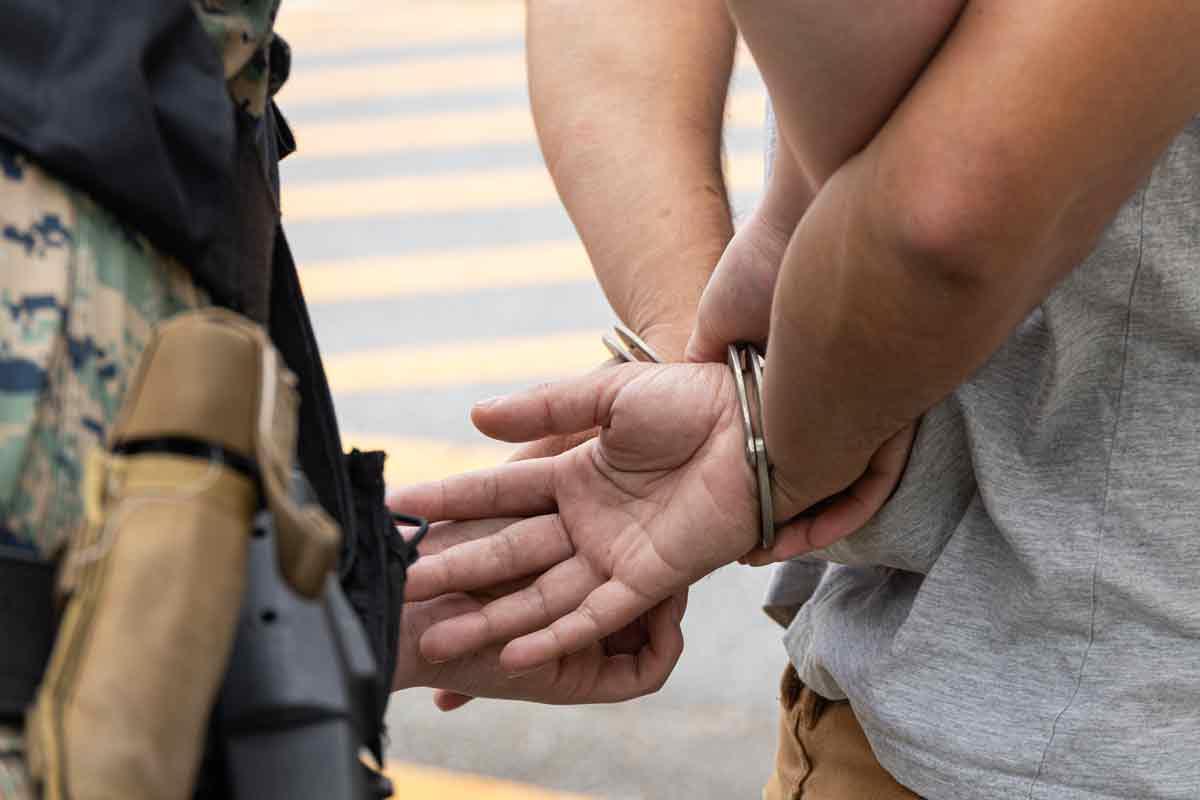

The U.S. military’s commander in Japan has finally tightened the rules around drinking for all troops stationed in the country months after several high-profile cases of sexual assault and rape on Okinawa have inflamed tensions — and sparked a recent rare call for more restrictions from a Marine general and the U.S. ambassador.
A spokesperson for U.S. Forces Japan, or USFJ, confirmed to Military.com in an email on Wednesday that a new liberty order had gone out but offered no details on the change. Instead, Okinawa officials in Washington, D.C., told Military.com that troops would no longer be able to drink between 1 a.m. and 5 a.m. off base.
The statement couched the change as part of “a thorough review” of liberty policies that are “continually reviewed and adjusted as appropriate.”
Read Next: Troops at Colorado Space Force Base Will Have to Bring Their Own To-Go Boxes for Dining Hall
However, what the USFJ statement left out was that the change comes after a July letter from Marine Lt. Gen. Roger Turner, the commander of the III Marine Expeditionary Force, and Ambassador Rahm Emanuel calling for “one set of liberty time rules across all branches.”
Army Times first reported the development on Wednesday.
Kazuyuki Nakazato, the director of Okinawa Prefecture’s office in Washington, D.C., told Miltiary.com in an interview on Thursday that the government was aware of the liberty changes and hopes it will, ultimately, lead to change in the wake of those alleged crimes.
“I hope that this implementation of this system will let people understand why we need this under the circumstances,” Nakazato said. “We sincerely hope that it will work, but we have to see how it turns out.”
The new liberty restriction, which will impact troops from all branches all over Japan and not just on Okinawa, is fairly minor. Some service members were likely already barred from overnight drinking by policies such as pre-flight requirements or existing restrictions on leaving base during those hours.
In July, Marine Corps bases in the country beefed up sobriety checks and included 100% breathalyzer tests for drivers and pedestrians after 8 p.m. and before 8 a.m.
The USFJ spokesman said in the statement that “over the past several months, each service component has strengthened training modules against alcohol abuse and reinforced appropriate standards of conduct to underscore the importance of being a good neighbor.”
The Japan-wide liberty restriction comes after multiple cases of egregious alleged crimes by U.S. service members on Okinawa in recent months prompted Japanese officials to speak out.
Most recently, a 20-year-old unidentified U.S. Marine, was accused of sexually assaulting and harming a woman in June, according to the military newspaper Stars and Stripes. First Lt. Owen Hitchcock, a spokesman for III Marine Expeditionary Force, told Military.com in an emailed statement last month that the service is cooperating with local authorities.
“The Marine Corps is aware of an allegation of criminal misconduct by an Okinawa-based Marine, and we are fully cooperating with all appropriate authorities during the ongoing investigation,” Hitchcock said. “The alleged behavior does not reflect the core values of the U.S. Marine Corps, nor does it represent the conduct of the overwhelming majority of Okinawa-based Marines.
“At this time, the accused Marine is not allowed to leave U.S. military installations in Japan unless granted specific exceptions by his command,” he said.
Another case went public in July. Senior Airman Brennon Washington, 25, who was stationed at Kadena Air Base, pleaded not guilty to allegations of kidnapping and sexually assaulting a minor in December, local Japanese media outlets reported.
In May, Marine Lance Cpl. Jamel Clayton, 21, was accused of trying to choke as well as sexually assault a woman in the western part of Okinawa, Military.com previously reported.
Okinawa governor Denny Tamaki told reporters, including Military.com, during a visit to Washington, D.C., in September that the “heinous crimes” involving the troops on Okinawa were damaging to the U.S. relationship with Japan.
“We, as Okinawa prefectural government, we need to assure our citizens that we are actually protecting their lives and safety,” Tamaki said.
Related: Okinawa Governor Blasts US Military’s Lack of Transparency in Sharing Alleged Crimes by Troops
